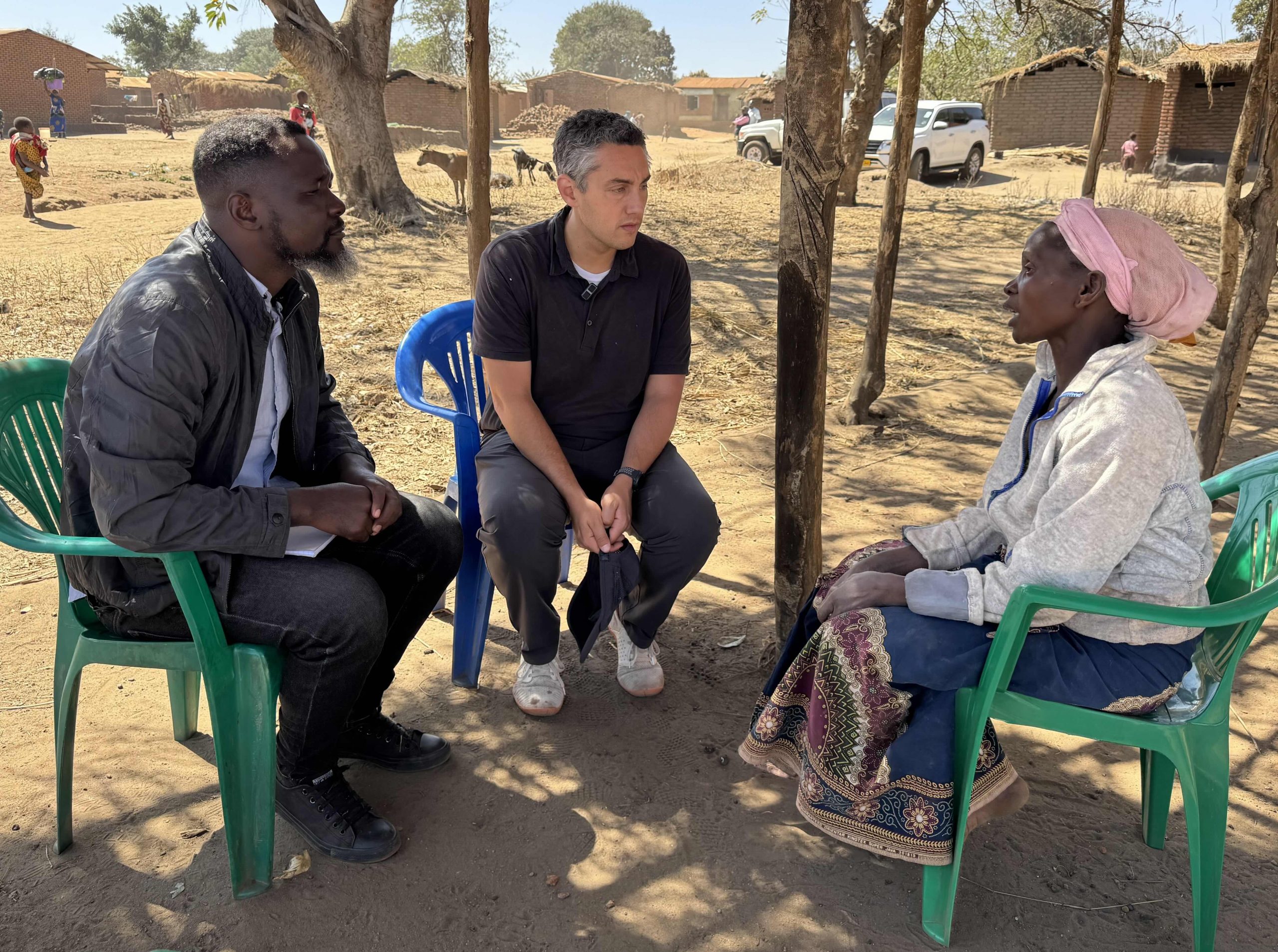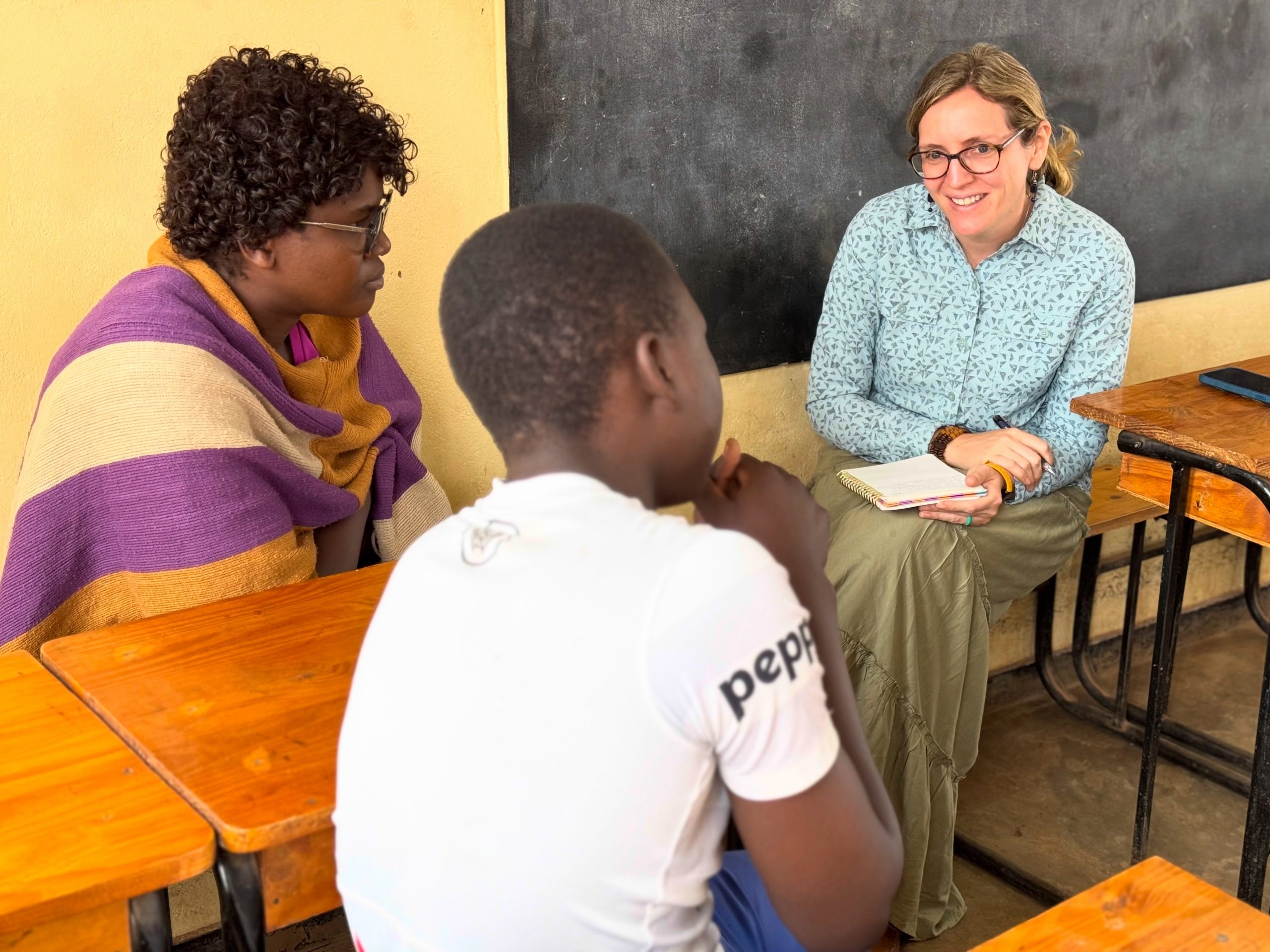Every month we send an email newsletter to our supporters sharing recent updates from our work. We publish selected portions of the newsletter on our blog to make this news more accessible to people who visit our website. For key updates from the latest installment, please see below!
If you’d like to receive the complete newsletter in your inbox each month, you can subscribe here.
Experience Our Recent Site Visit to Malawi
Today, we’re launching a new podcast mini-series that lets you ride along with our leadership team on their recent weeklong site visit to Malawi. Recorded daily during the trip, the series shares real-time reflections and clips of conversations with community members. New episodes will be released weekly over the next month, and you can subscribe to be notified when each episode is published.

At GiveWell, the vast majority of our work is desk-based research—analyzing evidence and modeling program outcomes. Site visits are a small part of what we do, but they add crucial on-the-ground context that raises important questions, challenges our assumptions, and makes our research stronger.
We had two main goals in visiting Malawi. First, we wanted to understand the effects of foreign aid cuts firsthand in a country that may be particularly hard hit. Second, we wanted to see livelihoods programs like GiveDirectly and Spark Microgrants in action, providing insight as we expand our focus on interventions that aim to increase people’s economic well-being.

Throughout the week, the team visited health clinics, schools, and local villages to speak with healthcare workers and community members who shared a glimpse into their lives. This new podcast mini-series offers a candid, day-by-day account of our learning process and new insights that will inform our research. We invite you to listen, subscribe, and follow along!
A Frontline View of Foreign Aid Cuts with CHAI’s CEO
Foreign aid funding cuts are reshaping the global health landscape. To understand the real-world effects, it’s essential to hear from grantees like the Clinton Health Access Initiative who are working closely with government partners to navigate this crisis.
In our recent podcast episode, GiveWell CEO and co-founder Elie Hassenfeld speaks with CHAI CEO Dr. Neil Buddy Shah about how the aid cuts are affecting vital health programs, what it takes to build a strategic response, and how this pivotal moment could shape the future of global health.
Elie and Buddy cover:
- The “gap identification” challenge: In many countries, a significant portion of the national health budget comes from foreign aid, and the funding cuts revealed a surprising vulnerability—many national health ministries don’t have a comprehensive map of who funds what within their own systems.
- A strategic response to the crisis: CHAI is helping governments implement a three-pronged response. This includes (1) driving efficiencies to make existing funds go further, (2) reprioritizing budgets to protect the most essential services, and (3) advocating for increased domestic health funding.
- The long-term view: The current funding crisis represents a major shakeup of the system that has defined global health for 20 years, creating a critical opportunity to rethink what should come next.
Read our episode summary for more, and subscribe to be notified of our newest episodes.
This episode was recorded on August 20, 2025 and represents our best understanding at that time.
Grant Spotlight
Our grantmaking supports programs and research that aim to save and improve lives the most per dollar. Here’s a look at one recent example:
Where: Rural Malawi
What: Data collection for a large-scale randomized controlled trial (RCT) of GiveDirectly’s unconditional cash transfer program
Who: University of Oxford
Amount: $491,700
How it works: This research will measure the effects of providing unconditional cash transfers of $550 (representing 125% of the area’s average annual household income) to 110,000 adults, providing valuable data on this approach in lower-income, rural areas.
Why this grant: This research addresses key uncertainties in our analysis of GiveDirectly—primarily whether the spillover benefits of cash transfers found in a prior RCT can be replicated in other contexts—and allows us to act as an engaged partner, influencing research design and accessing findings early to inform our future grantmaking.
Funded by: Donations to GiveWell’s All Grants Fund
To learn more, check out the grant page.
Partner Roundup
- Learn how GiveWell’s funding supported the expansion of Helen Keller Intl’s vitamin A supplementation program in Madagascar.
- Read about Malaria Consortium’s work to support the nationwide launch of the malaria vaccine in Togo.
- See how New Incentives is working with traditional leaders to address vaccine hesitancy.
Comments or Questions?
We’re always looking for fresh perspectives on our research. If you have comments or questions on our work, we want to hear from you! Reach out to us at info@givewell.org.

Comments
Where can I find an up-to-date appraisal or review of Kiva?
Hi Stephen,
Thanks for your question! Outside of our four Top Charities, we do not conduct full organizational reviews. Instead, we identify specific funding opportunities—that is, evidence-backed programs implemented in particular locations during a specific time period—and model their cost-effectiveness. We prioritize opportunities with strong evidence, room for more funding, and transparency, then allocate resources to those that meet our cost-effectiveness threshold. We do not have any updated assessments of Kiva planned.
Comments are closed.